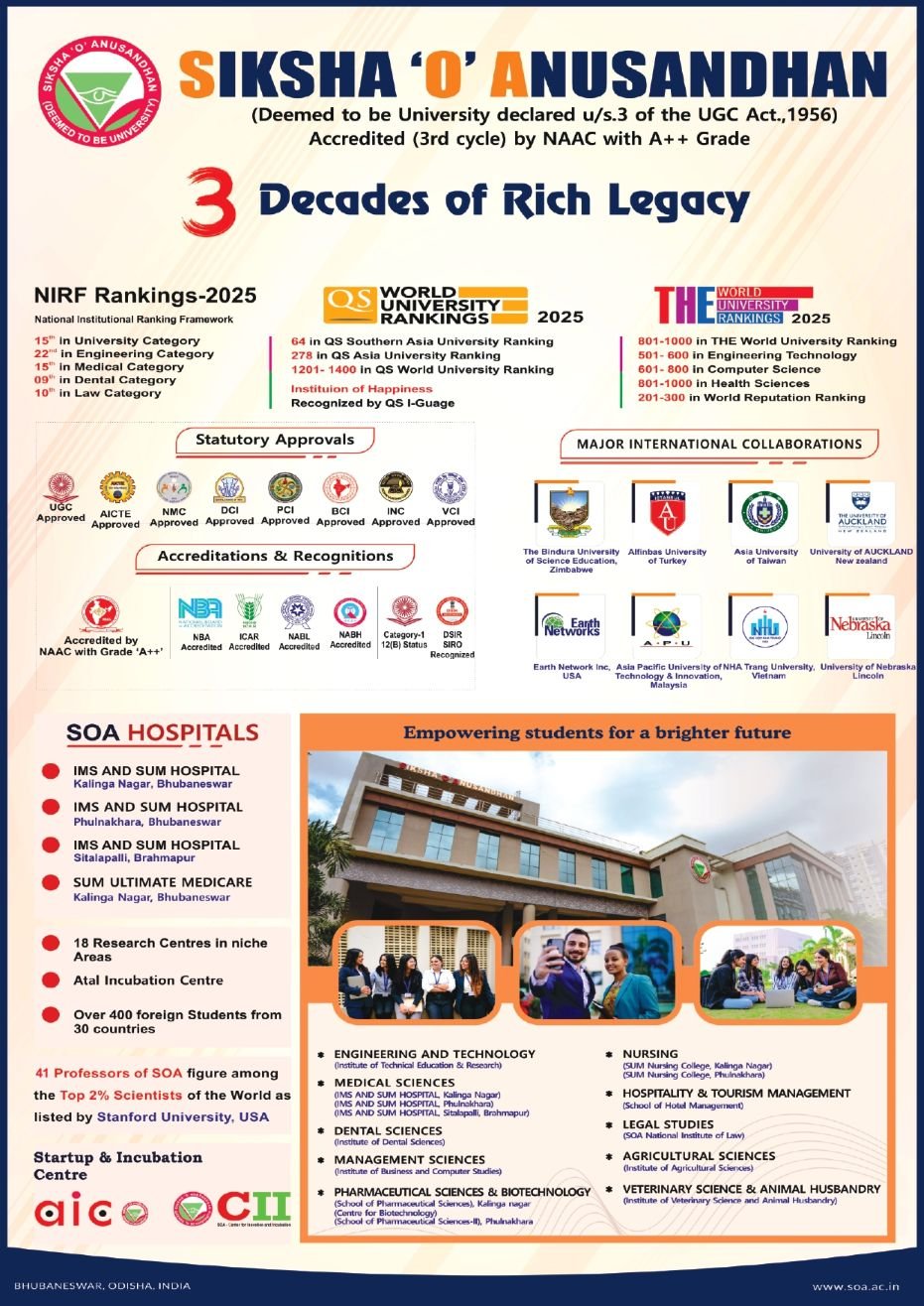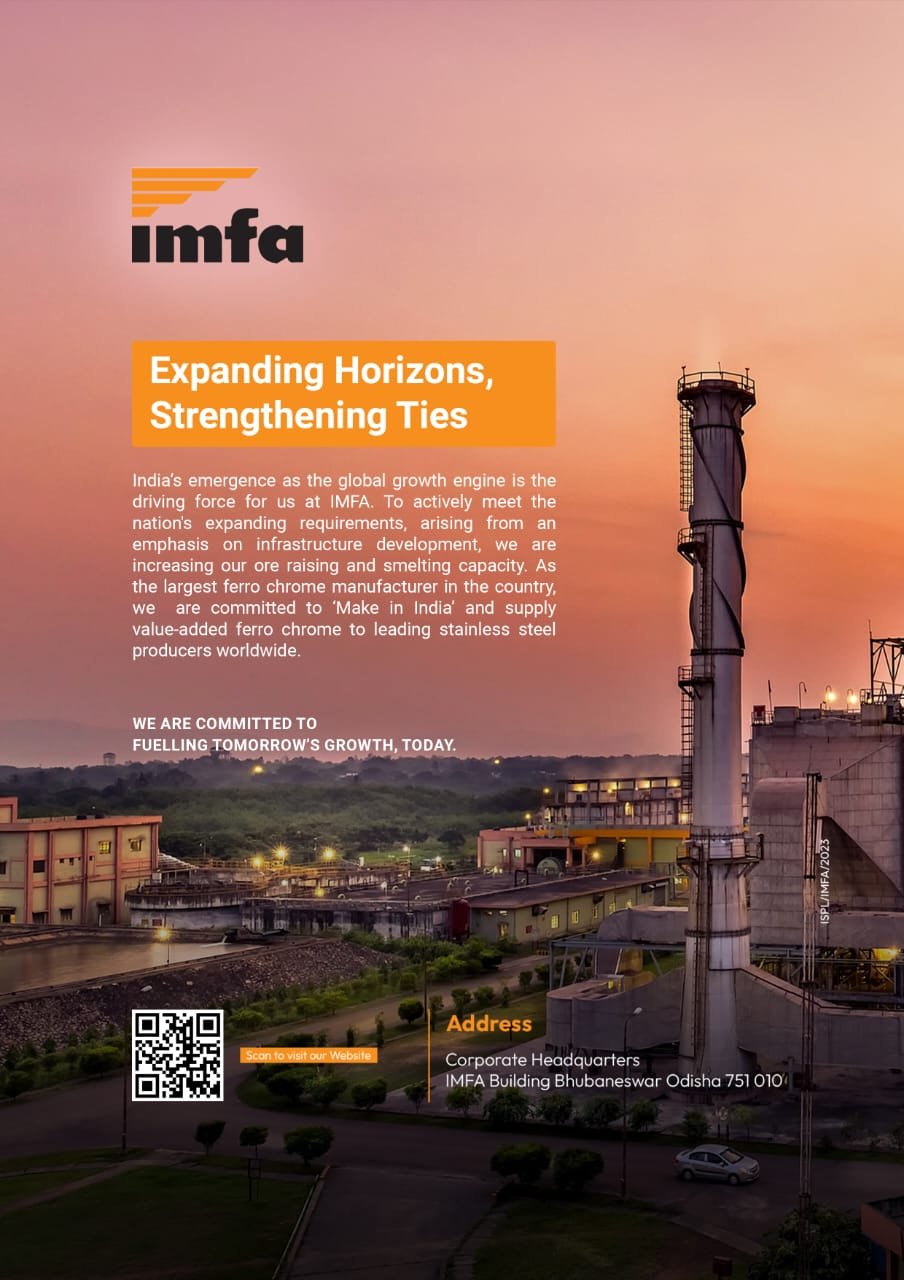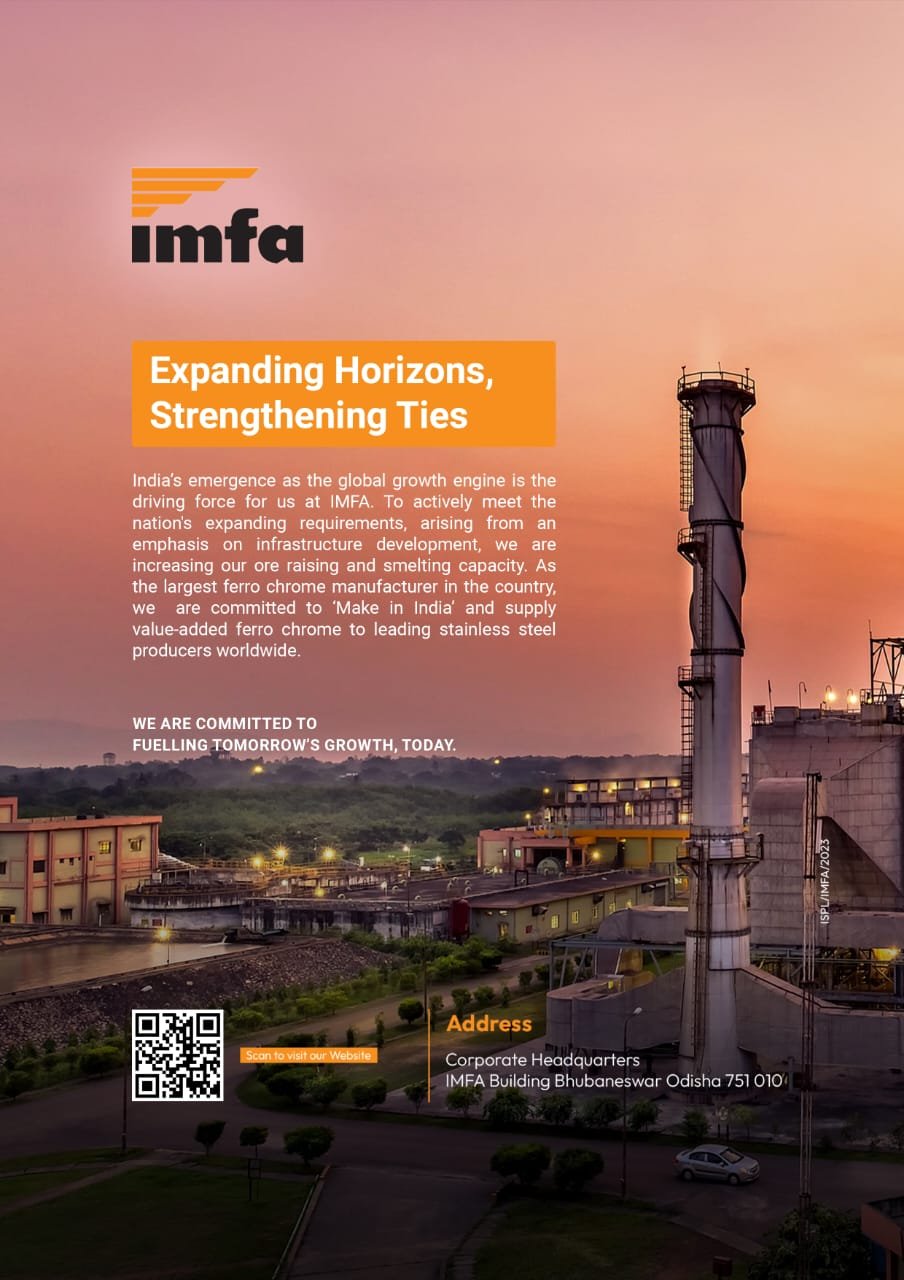SOA symposium links AI, agriculture, and right to food in tackling Odisha’s hunger crisis

Bhubaneswar, Oct 16: Odisha is grappling with a serious food security challenge affecting children and young mothers, necessitating immediate intervention, said prominent civil society leader Jagadananda on Wednesday.
Speaking at the inaugural session of a national symposium on ‘Artificial Intelligence and the Right to Food: Advancing Agriculture for a Better Future and a Better Life’ held at Siksha ‘O’ Anusandhan (SOA) University, Jagadananda highlighted that 29% of children under five in Odisha are stunted. Additionally, malnutrition is prevalent among mothers aged 15 to 29, with tribal areas facing even graver conditions.
Jagadananda, a former member of the State Planning Board and Co-Founder of the Centre for Youth and Social Development (CYSD), pointed out Odisha’s overdependence on rain-fed agriculture, with only 30% of farmland under irrigation. He stressed the need to promote climate-resilient agriculture, emphasizing the crucial link between water management and food security.
SOA Vice-Chancellor Prof. Pradipta Kumar Nanda presided over the symposium, which also featured addresses by Dr. Govinda Chandra Acharya, Principal Scientist at ICAR’s Central Horticultural Experiment Station, Bhubaneswar, and Prof. Santosh Kumar Rout, Dean of the Institute of Agricultural Sciences.
Jagadananda underscored that India’s constitution guarantees the Right to Food Security, operationalized through the National Food Security Act, 2013. “The state is obligated to ensure this right, allowing citizens to live with dignity,” he added.
Dr. Acharya drew attention to India’s worrying placement in the 2024 Global Hunger Index (GHI), ranking 105th, which categorized the country’s hunger level as ‘serious.’ In contrast, neighboring countries such as Bangladesh, Nepal, and Sri Lanka were ranked in the ‘moderate’ category, indicating the need for immediate improvements in agricultural productivity and food quality.
“The challenge of achieving the United Nations’ Sustainable Development Goal (SDG) of food security by 2030 is daunting, especially in the context of climate change and India’s growing population,” said Prof. Nanda. He noted that SOA had established two research centers—the Centre for Environment and Climate and the Centre for Climate Smart Agriculture—to focus on climate-resilient farming practices.
The event concluded with a welcome address by Program Convenor Prof. Bibudha Parasar, while Prof. Saroj Kumar Mohanty, from the Department of Plant Physiology, proposed the vote of thanks.




